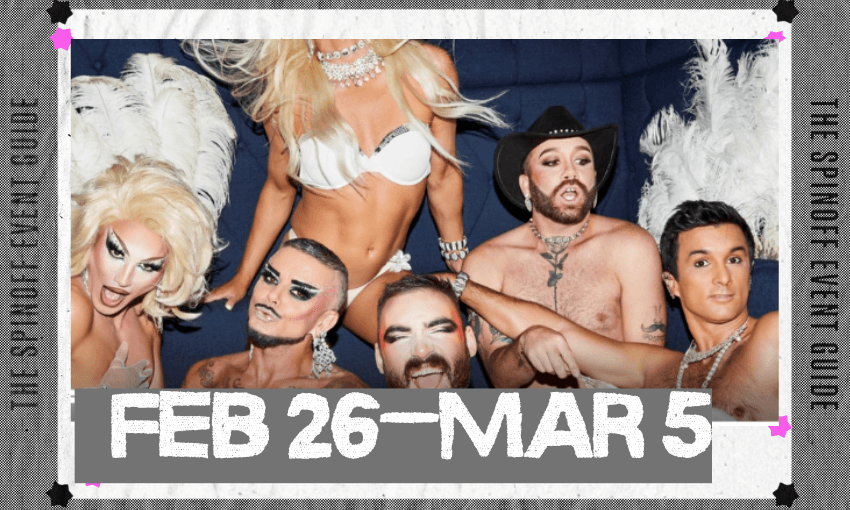Alex Casey talks to access coordinator Felicity Hamill about one of the newest jobs in the screen industry, and why it’s been a long time coming.
From the very first moments of Sight Unseen, it is clear it isn’t your average documentary series. “At a ski field, a person wearing a vision impaired vest gets into skis and starts sliding down a snowy incline,” the audio description voice dryly reads, as we see unsteady host Ari Kerssens begin his descent. “… before wobbling and eating shit on the ground”.
Produced by accessibility organisation Able, Sight Unseen is groundbreaking for a number of reasons. Exploring the experience of blind and low-vision rangatahi across Aotearoa, it is one of the first documentaries in the world to incorporate default (and sometimes sweary) audio descriptions, and one of the first productions in the country to utilise an access coordinator.
One of the newest roles to emerge in the global screen industry in recent years, there are just three access coordinators in Aotearoa. Trained by UK company Bridge06, they work with screen productions to ensure that deaf, disabled and neurodivergent (DDN) talent have their access requirements met in order to do their jobs to the best of their abilities.
Sight Unseen access coordinator Felicity Hamill has worked in the screen industry for over two decades in every role from extra to stunt person, creature work to locations assistant. As a part of the DDN community herself, she began to notice a distinct lack of representation and conversation around those who might have access requirements on various productions.
“It’s just something that’s never really been on the radar, and I just started thinking about it more and more – where is everyone?” she tells The Spinoff. “If one in four of our population is a part of that community, then it just seems quite odd that we’re not being represented in there. And once you start looking, you really can’t stop noticing the lack of it.”
Having mulled over this absence for many years, Hamill jumped at the opportunity to train with accessibility organisation Bridge 06 in Sydney at the end of 2023. Joined by two other New Zealanders, Chelsea Bridges and Jared Flitcroft, along with nine Australians, she says it was extremely heartening to hear people’s lived experiences of navigating the film industry.
“I think there’s a sense, for many in our industry, that if you do disclose that you’re living with something that’s chronic, or that’s not easily identifiable, that you might be seen as a liability,” she says. “It was so great to learn from others and see that it’s just not the case – it’s often just a matter of facilitating little adjustments that let everyone get on with their work.”
Sight Unseen was her first gig as an access coordinator, and she worked with the production to speak with all cast and crew about any access requirements they needed. For example, given that the series had extensive talent who were blind or low vision, that might mean ensuring everyone got their documents sent to them in the preferred format for their screen reader.
“It’s just really simple things like that, before you even get to the shoot stage, that really make things easier to help people,” says Hamill. “We’re basically learning from the cast and crew, and figuring out what we actually need to pass on to production that will help. In turn, it’s really teaching productions to look at their processes and become more accessible overall.”
Because although a project like Sight Unseen might have more obvious access requirements, Hamill believes that all productions can benefit from considering some of these issues. “I think we can all learn a lot from the DDN community around working smarter, not harder, and just making it a more enjoyable experience,” she says. “It all ties in with being good for everybody.”
For example, she says all productions would be better for having a quiet space on set. “Who doesn’t need a bit of a timeout on a very hectic shoot day?” she laughs. “Everyone needs a break and a safe quiet space where nobody is making phone calls.” It’s not just on set though – access coordinators can also consult when constructing studios to ensure mobility access.
“I think a lot of productions want to be more diverse and equitable and inclusive, but they just need support to do that,” Hamill says. “Some people are likening it to that of an intimacy coordinator. You’ve got it there, and while you might have your cast and crew who feel fine to do whatever they’re comfortable with, you’ve still got that safe space if you need it.”
She also hopes that having more access coordinators will help to fill the representation gap in the industry. “Just by engaging with an access coordinator, productions are saying ‘we see you, we’re going to include you’. And that doesn’t necessarily mean telling a disabled story – it’s inclusivity across the board right down to someone in the production office.”
In an odd wish for someone who has just started in a new role, Hamill’s hope is that her services won’t even be required in a few years time. “Access coordination just makes sense now until it is just second nature to have it embedded in our productions,” she says. “Eventually we won’t even need an access coordinator, because it will just be a natural part of it.”
Sight Unseen arrives on Able’s social media channels on February 26



